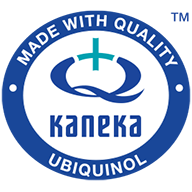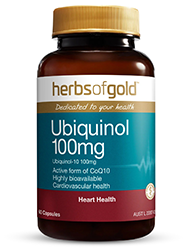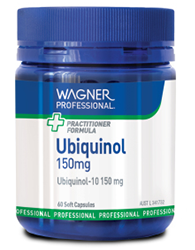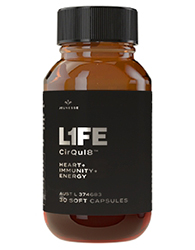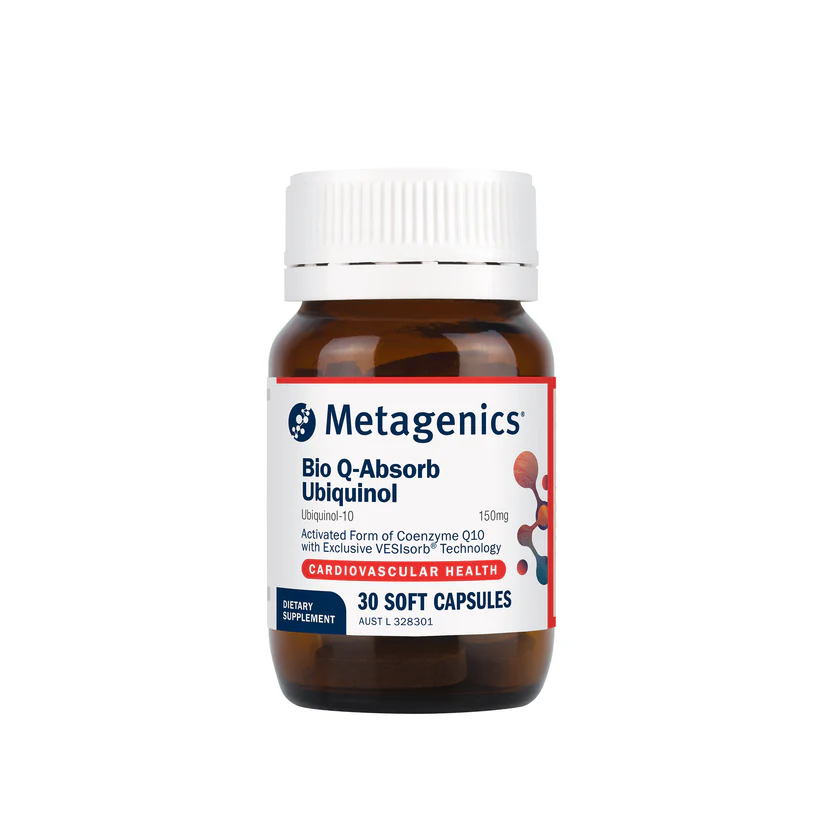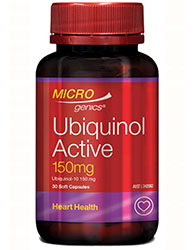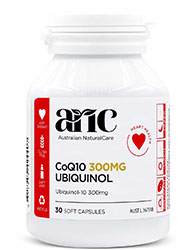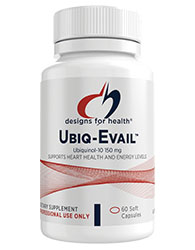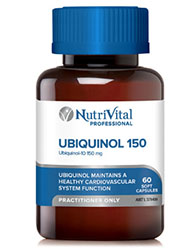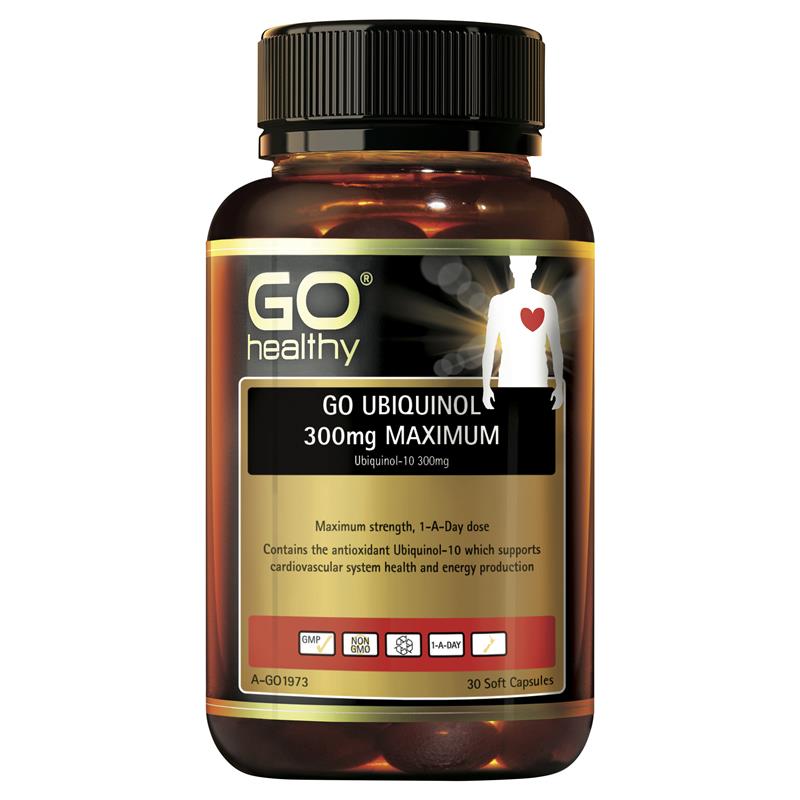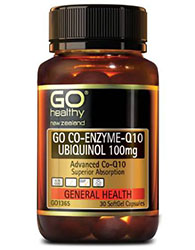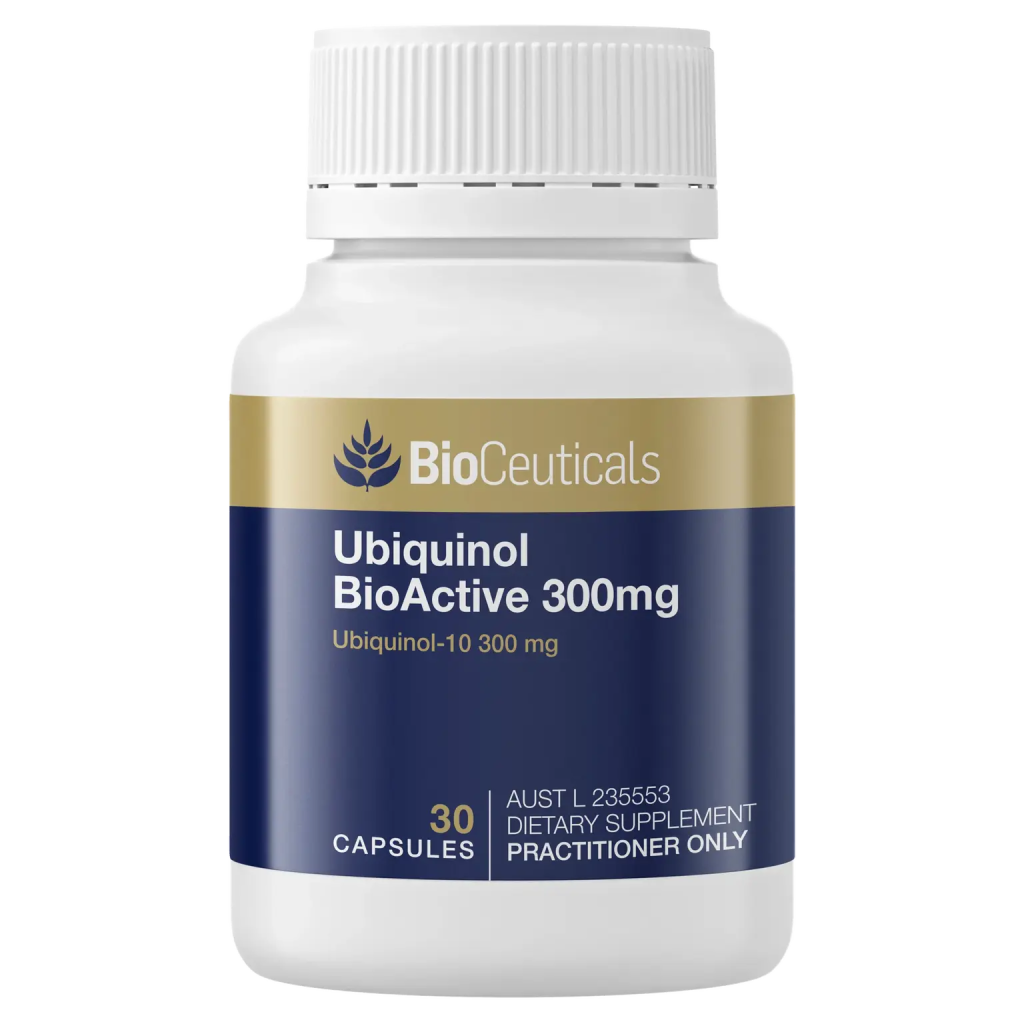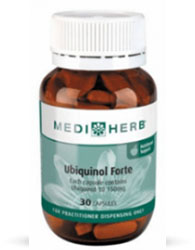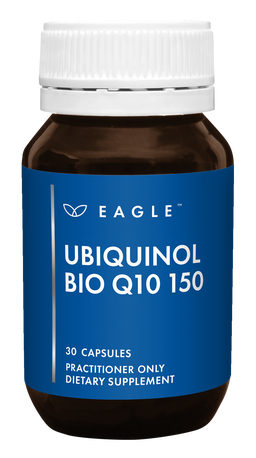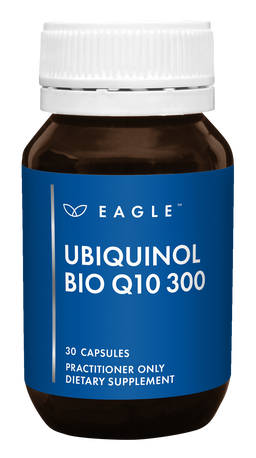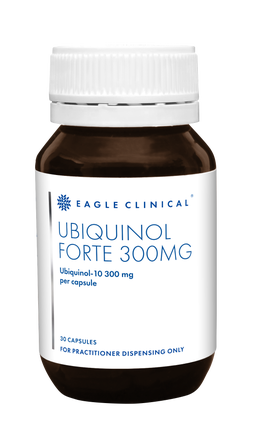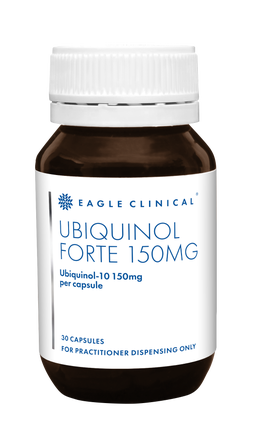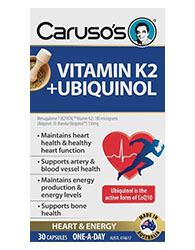For Consumers

For Health Professionals

Ubiquinol is the active, antioxidant form of coenzyme Q10, naturally produced in the body. It plays a vital role in generating energy in cells and helps protect them from free radical damage. As we age, our body’s ability to produce Ubiquinol declines,[1,2] which may affect energy levels and overall wellbeing. Ubiquinol is especially important for supporting energy production in organs like the heart, brain and muscles. Supplementing with Ubiquinol may help maintain these levels and support your energy and vitality, particularly as you age.
Ubiquinol is the active, antioxidant form of coenzyme Q10, naturally produced in the body. It plays a vital role in generating energy in cells and helps protect them from free radical damage. As we age, our body’s ability to produce Ubiquinol declines,[1,2] which may affect energy levels and overall wellbeing. Ubiquinol is especially important for supporting energy production in organs like the heart, brain and muscles. Supplementing with Ubiquinol may help maintain these levels and support your energy and vitality, particularly as you age.
Ubiquinol is suitable for a range of conditions and contributes to overall health and wellbeing for adults over 30 years of age. Supported by 100+ clinical studies and over 45+ years of research, Kaneka Ubiquinol™ is an evidence-based supplement recommended by healthcare practitioners for the support and maintenance of healthy: heart and vascular system,[9,10] LDL cholesterol levels in healthy people,[11-13] male and female fertility,[14-18] cognitive function,[19-20] energy production,[21,22] fatigue,[23,24] migraines,[25] inflammation[26,27] and optimal wellbeing.[28,29]
Ubiquinol supports cellular energy production,[30,31] helps relieve fatigue,[23,24] maintains cardiovascular health,[9,10] supports muscle function and tissue health[32,33], maintains cognitive function,[19,20] and provides antioxidant protection.[34,35] It may also help maintain healthy cholesterol levels,[11-13] and support fertility in both men and women.[14-18] Ubiquinol contributes to general wellbeing and vitality,[28,29] especially as we age.[36,37]
Ubiquinol supports cellular energy production,[30,31] helps relieve fatigue,[23,24] maintains cardiovascular health,[9,10] supports muscle function and tissue health[32,33], maintains cognitive function,[19,20] and provides antioxidant protection.[34,35] It may also help maintain healthy cholesterol levels,[11-13] and support fertility in both men and women.[14-18] Ubiquinol contributes to general wellbeing and vitality,[28,29] especially as we age.[36,37]
From age 20 onwards, natural Ubiquinol levels begin to decline.[1,2] Adults over 30 may benefit from supplementing to support ongoing energy and wellbeing. Most people feel a difference within 1-2 weeks of regular use.[40] This may vary depending on your age, lifestyle and health condition.
Always consult a healthcare professional for personalised advice specific to your needs.
Ubiquinol is found in some foods like red meat, chicken and sardines, but in small amounts. To get 100 mg of Ubiquinol from food alone, you’d need to eat one of the following:[41]
- 20 x170 g steaks
- 34 x170 g chicken breasts
- 60 avocados
- 1.6 kg of peanuts
- 50 cups of spinach
- 120 cans of sardines
Common dosages range from 100 mg to 300 mg daily, depending on your age, lifestyle and health needs. Ubiquinol supplements are available in various strengths to suit your personal health goals. Your healthcare practitioner can recommend the best dose appropriate for your health needs.
If you take prescription medications, such as warfarin, consult your healthcare practitioner before starting Ubiquinol. Ubiquinol is generally well-tolerated, but there may be medications or health situations where Ubiquinol may not be warranted. Some medications may reduce natural levels of CoQ10 in our bodies and supplementing with Ubiquinol may help restore them. Seek professional advice to ensures it is right for your individual needs.
Kaneka Ubiquinol™ is the only patented, high-quality Ubiquinol made via a unique precision yeast fermentation process. It is bioidentical to the Ubiquinol naturally produced in your body, clinically researched, and trusted by healthcare professionals. Look for the Kaneka Seal of Quality to ensure purity and effectiveness in your product.
- Kalén A, et al. Age-related changes in the lipid compositions of rat and human tissues. Lipids 1989;24(7):579-584.
- Wada H, et al. Redox status of coenzyme Q10 is associated with chronological age. JAGS. 2007;55:1141-1142.
- Takahashi T, et al. NADPH-dependent coenzyme Q reductase is the main enzyme responsible for the reduction of non-mitochondrial CoQ in cells. BioFactors 2008;32: 59-70.
- Diaz-Castro G. Extramitochondrial coenzyme Q10 in Aging. In: López-Lluch G, editor. Coenzyme Q in aging. Springer Nature Switzerland AG 2020, pp. 91-111.
- Failla M, et al. Increased bioavailability of ubiquinol compared to that of ubiquinone is due to more efficient micellarization during digestion and greater GSH-dependent uptake and basolateral secretion by caco-2 cells. J Agricult Food Chemistry 2014;62.
- Zhang Y, et al. Ubiquinol is superior to ubiquinone to enhance Coenzyme Q10 status in older men. Food Funct 2018;9(11):5653-5659.
- Hosoe K, et al. Study on safety and bioavailability of ubiquinol (Kaneka QH) after single and 4-week multiple oral administration to healthy volunteers. Regul Toxicol Pharmacol 2007;47:19-28.
- Ikematsu H, et al. Safety assessment of coenzyme Q10 (Kaneka Q10) in healthy subjects: a double-blind, randomized, placebo-controlled trial. Regul Toxicol Pharmacol 2006;44:212-218.
- Rabanal-Ruiz Y, et al. The use of coenzyme Q10 in cardiovascular diseases. Antioxidants (Basel) 2021;10(5):755.
- Kawashima C, et al. Ubiquinol improves endothelial function in patients with heart failure with reduced ejection fraction: A single-center, randomized double-blind placebo-controlled crossover pilot study. Am J Cardiovasc Drugs 2020;20(4):363-372.
- Schmelzer C, et al. Ubiquinol-induced gene expression signatures are translated into altered parameters of erythropoiesis and reduced low density lipoprotein cholesterol levels in humans. IUBMB Life 2011;63(1):42-48.
- Liu Z, et al. Effects of coenzyme Q10 supplementation on lipid profiles in adults: A meta-analysis of randomized controlled trials. J Clin Endocrinol Metab 2022;108(1):232-249.
- Sabbatinelli J, et al. Ubiquinol ameliorates endothelial dysfunction in subjects with mild-to-moderate dyslipidemia: A randomized clinical trial. Nutrients 2020;12(4):1098.
- Derbyshire E (2024). CoQ10 Ubiquinol: The surfacing of science and role in female and male fertility. A narrative review. 10.20944/preprints202407.0879.v1.
- Wu CC, et al. Examining the effects of nutrient supplementation on metabolic pathways via mitochondrial ferredoxin in aging ovaries. Nutrients 2024;16(10):1470.
- Thakur AS, et al. Effect of Ubiquinol on serum reproductive hormones of amenorrhic patients. Indian J Clin Biochem 2016;31(3):342-348.
- Alahmar AT. The impact of two doses of coenzyme Q10 on semen parameters and antioxidant status in men with idiopathic oligoasthenoteratozoospermia. Clin Exp Reprod Med 2019;46(3):112-118.
- Thakur AS, et al. Effect of ubiquinol therapy on sperm parameters and serum testosterone levels in oligoasthenozoospermic infertile men. J Clin Diagn Res 2015;9(9):BC01-03.
- Kinoshita T, et al. The effects of ubiquinol (reduced form of coenzyme Q10) on memory, attentiveness, and work processing ability in healthy middled-aged and elderly residents – A randomized, double-blind, placebo-controlled trial. Jpn Pharmacol Ther 2021;49:1739-1747.
- Fernández-Portero C, et al. Coenzyme Q10 levels associated with cognitive functioning and executive function in older adults. J Gerontol A Biol Sci Med Sci 2023;78(1):1-8.
- Freye E, et al. Faster recovery after exercise with phytochemicals aimed at mitochondrial energy turnover – a double blind randomized placebo control study in college female soccer players. Int J Pharmacol Phytochem Ethnomed 2015;1:65-73.
- Diaz-Castro J, et al. Ubiquinol supplementation modulates energy metabolism and bone turnover during high intensity exercise. Food Funct 2020;11(9):7523-7531.
- Mizuno K, et al. Ubiquinol-10 intake is effective in relieving mild fatigue in healthy individuals. Nutrients 2020;12(6):1640.
- Fukuda S, et al. Ubiquinol-10 supplementation improves autonomic nervous function and cognitive function in chronic fatigue syndrome. Biofactors 2016;42(4):431-440.
- Nattagh-Eshtivani E, et al. The role of nutrients in the pathogenesis and treatment of migraine headaches: Review. Biomed Pharmacother 2018;102:317-325.
- Fischer A, et al. Coenzyme Q10 redox state predicts the concentration of c-reactive protein in a large caucasian cohort. Biofactors 2016;42(3):268-276.
- Fan L, et al. Effects of coenzyme Q10 supplementation on inflammatory markers: A systematic review and meta-analysis of randomized controlled trials. Pharmacol Res 2017;119:128-136.
- Cirilli I, et al. Role of coenzyme Q10 in health and disease: An update on the last 10 years (2010-2020). Antioxidants 2021;10:1325.
- San-Millán I. The key role of mitochondrial function in health and disease. Antioxidants (Basel) 2023;12(4):782.
- Guaras A, et al. The CoQH2/CoQ ratio serves as a sensor of respiratory chain efficiency. Cell Reports 2016;15:197-209.
- Tian G, et al. Ubiquinol-10 supplementation activates mitochondria functions to decelerate senescence in senescence-accelerated mice. Antioxid Redox Signal 2014;20(16):2606-2620.
- Suzuki Y, et al. Short-term ubiquinol-10 supplementation alleviates tissue damage in muscle and fatigue caused by strenuous exercise in male distance runners. Int J Vitam Nutr Res 2021;91(3-4):261-270.
- Moreno-Fernandez J, et al. Ubiquinol short-term supplementation prior to strenuous exercise improves physical performance and diminishes muscle damage. Antioxidants 2023;12:1193.
- Ito K, et al. Reduced coenzyme Q10 decreases urinary 8-oxo-7,8-dihydro-2′-deoxyguanosine concentrations in healthy young female subjects. J Med Food 2015;18:835-840.
- Sarmiento A, et al. Short-term ubiquinol supplementation reduces oxidative stress associated with strenuous exercise in healthy adults: A randomized trial. Biofactors. 2016;42(6):612-622
- Shoko D, et al. The effect of the reduced form of coenzyme Q10 (Ubiquinol, Kaneka QH™) on QoL improvement in the elderly. J Clin Therap Med 2008;24:233-238.
- Ota M, et al. The effects of ubiquinol intake and sociophysical training on the activation of psychological and infrared camera-measured body temperature physiology and blood molecular markers: a pilot study among healthy female older adults. Appl Sci 2024;14:2366.
- Kunching S, et al. The effects of ubiquinol supplementation on clinical parameters and physical performance of trained men. Songklanakarin J Sci Technol 2022;44(1):231-235.
- Alf D, et al. Ubiquinol supplementation enhances peak power production in trained athletes: a double-blind, placebo controlled study. J Internat Soc Sports Nutr 2013;10(24):1-8.
- Mantle D, Dybring A. Bioavailability of coenzyme Q10: An overview of the absorption process and subsequent metabolism. Antioxidants (Basel) 2020;9(5):386.
- Schulman, R. et al. (2023) Ubiquinol content in common foods, Ubiquinol. Available at: https://ubiquinol.org/foods-with-ubiquinol
Our Recent Articles
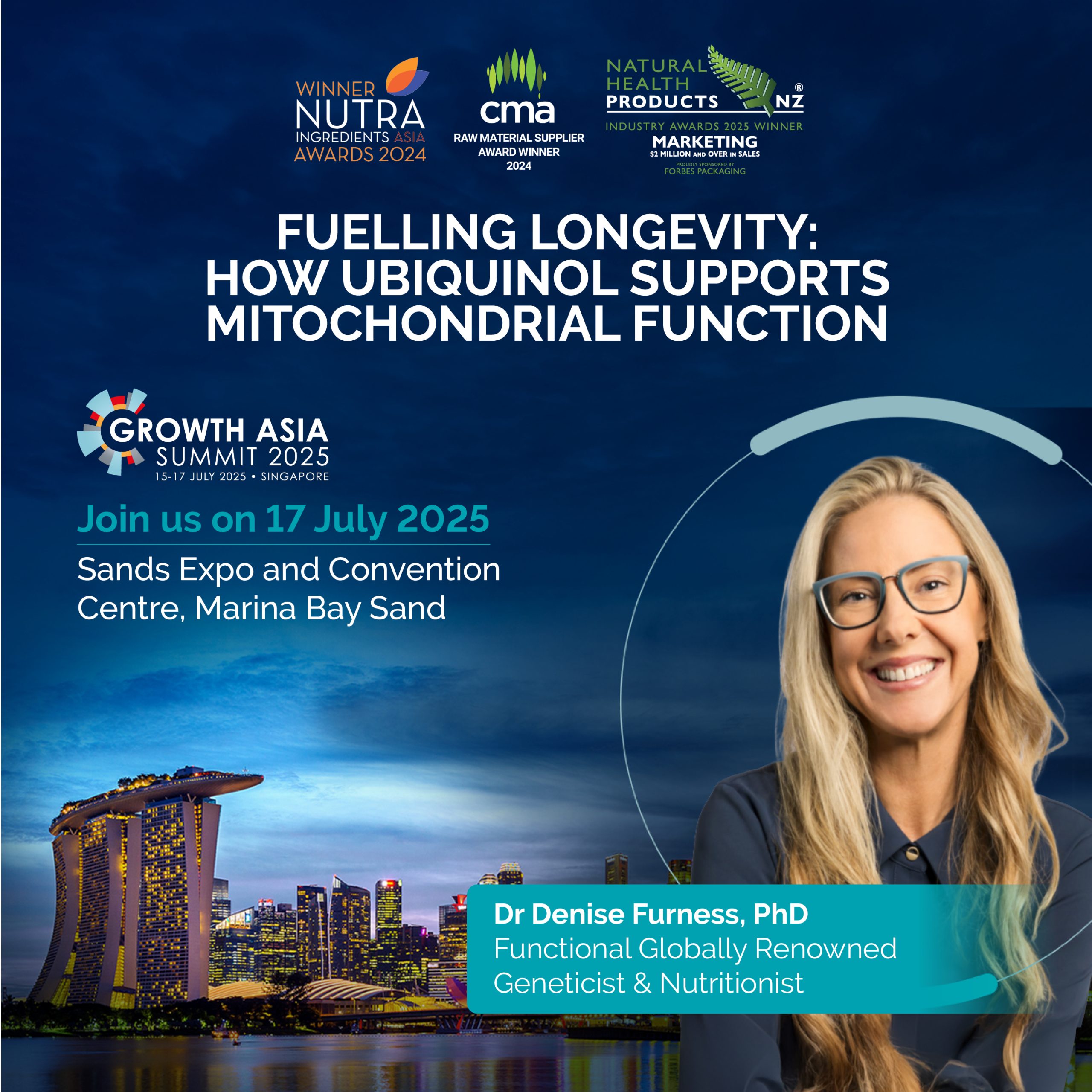
ADVANCING LONGEVITY SCIENCE THROUGH MITOCHONDRIAL INNOVATION AT THE GROWTH ASIA SUMMIT 2025
Jul 2025Category: Ageing, Conferences Read More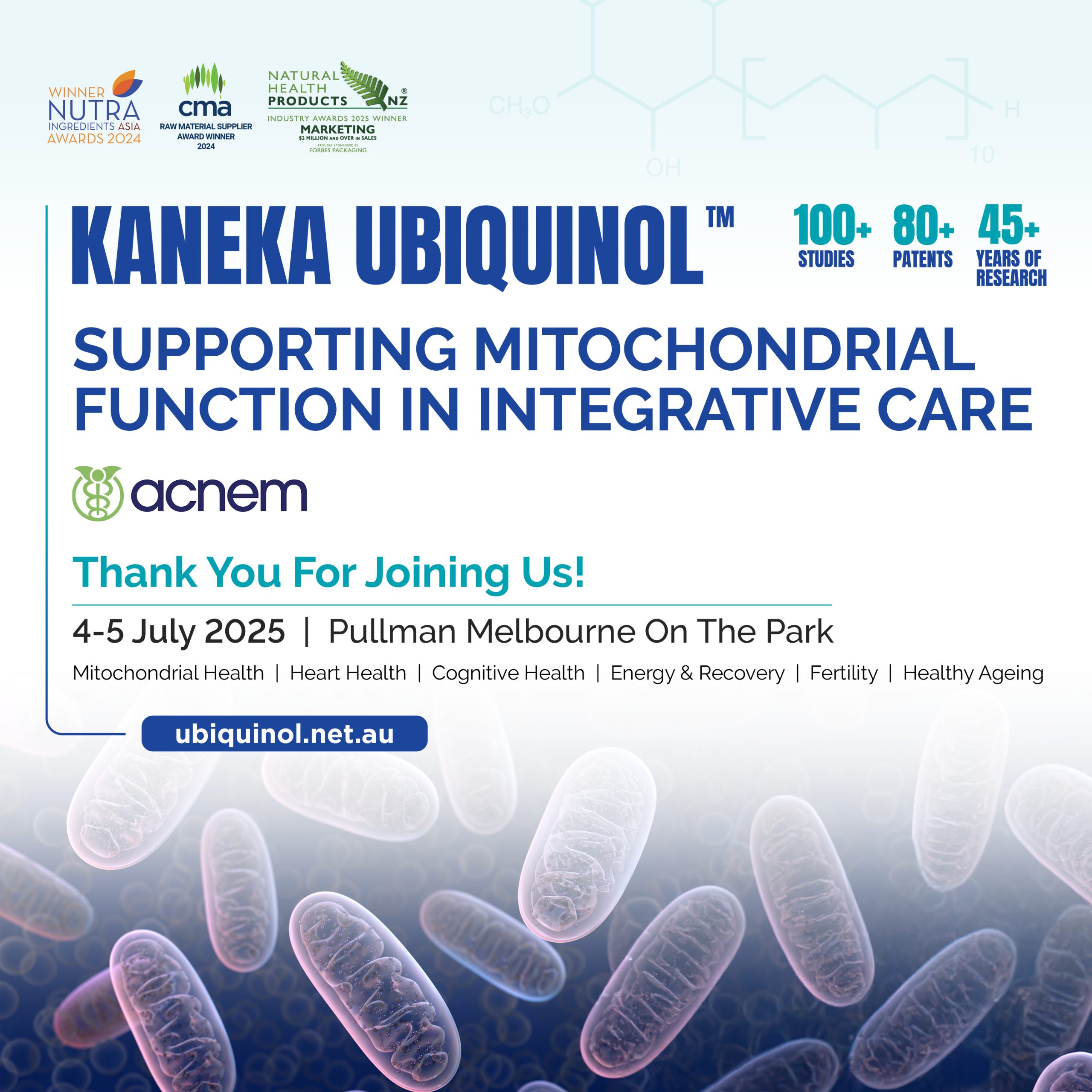
KANKEKA UBIQUINOL™ AT ACNEM 2025: MITOCHONDRIAL HEALTH FOR INTEGRATIVE MEDICINE
Jun 2025Category: Vitamins Read More
KANEKA UBIQUINOL™ WINS COVETED MARKETING AWARD 2025 AT NATURAL HEALTH PRODUCTS NEW ZEALAND SUMMIT
Jun 2025Category: Vitamins Read More
Ubiquinol and Healthy Ageing: A Conversation with Dr Denis Furness on the House of Wellness Radio
Jun 2025Category: Ageing, Antioxidants, Broadcast, Energy, Fatigue, Health, healthy ageing, In The News, Mitochondrial health, Ubiquinol, wellness Read More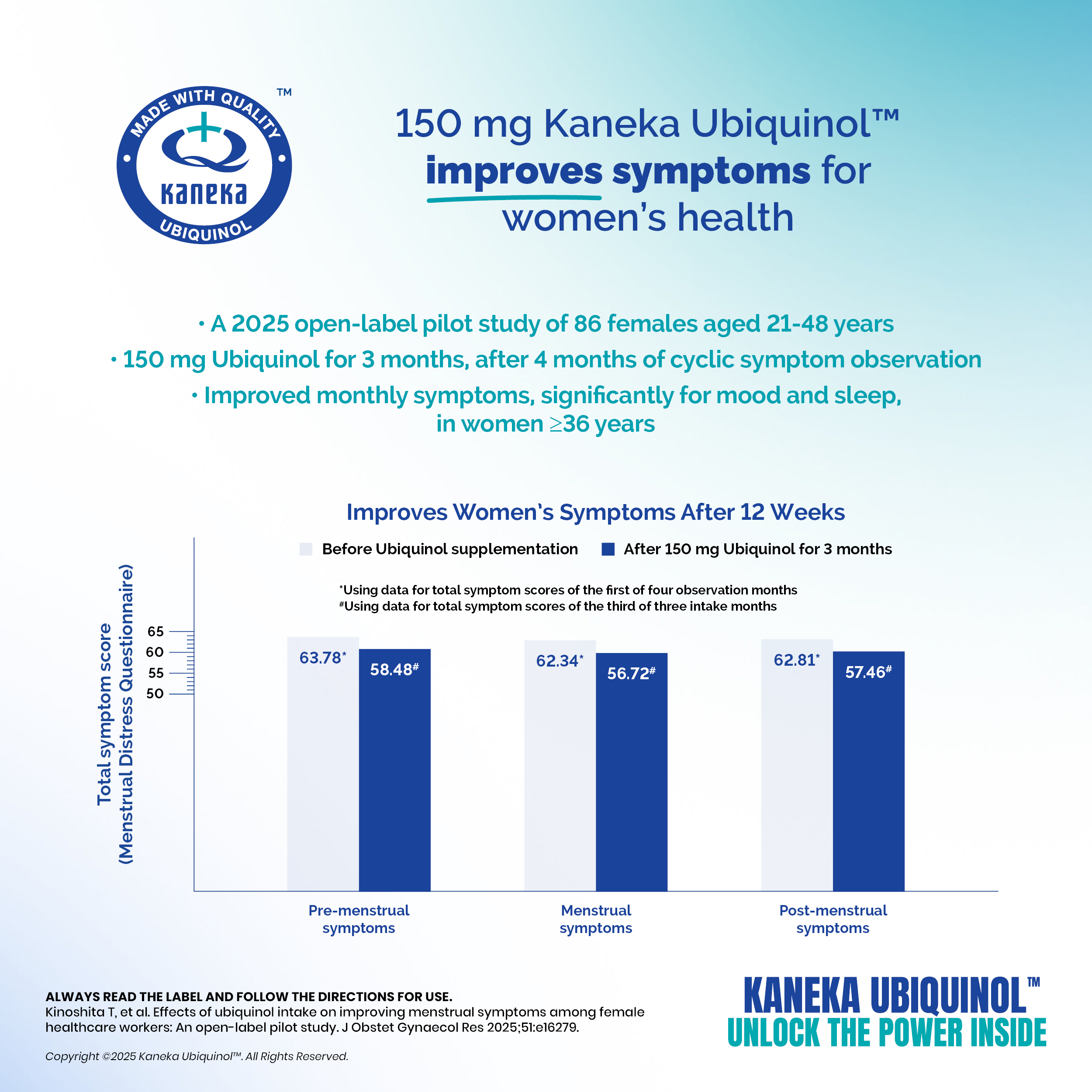
Kaneka Ubiquinol™ for Relief of Women’s Symptoms
May 2025Category: Ageing, Fertility, Menopause, Ubiquinol, wellness, Women's Health Read More

